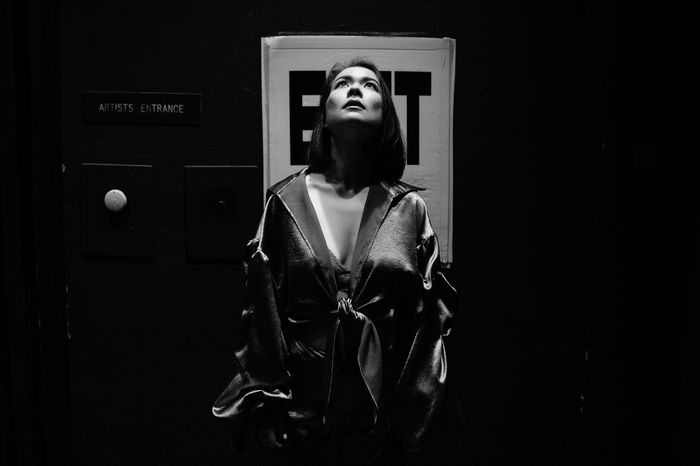Once Twice Melody Reviewed
Rishi Sharma reviews the latest album from American duo Beach House, three years on from their previous release

Baltimore dream pop duo Beach House are many things to many people, but one thing they have never been is unpredictable. Since releasing their debut album in 2006, their sound has remained largely consistent, with only subtle shifts between albums. “I hate it when bands change between records,” remarked multi-instrumentalist Alex Scally in 2012, “that’s not the way we work.”
With this in mind, the announcement made by the band in November 2021 came as a shock. In a typically polite and understated instagram post they announced several changes for their latest album, the first since 2018’s 7. For the first time in their careers, Beach House would release an album which they had produced themselves. It would also be by far their longest yet: a double album of 18 songs stretching across an 84-minute runtime. Even more unusually, it was announced that the album would be released in four ‘chapters’, with a new batch of songs being released every month until February.
“The album, Once Twice Melody, is perhaps the best record released by one of the best bands of the 21st century”
Admittedly, I was sceptical about these decisions. After all, Beach House’s consistent approach had produced some of the most cherished dream pop albums of the 2000s and 2010s. Listening to Beach House was like returning home; there was comfort in the fact that you knew more or less exactly what to expect. I wondered whether, after years of subtle tweaks and fine-tuning, Beach House had abandoned what they had said in 2012. Essentially, I feared that they might have embraced too much change at once.
I was wrong. The album, Once Twice Melody, is perhaps the best record released by one of the best bands of the 21st century. Incredibly, the album is both a summation of the sleek sound they had been cultivating since 2010’s Teen Dream and also a progression from it. Some tracks echo the pulsing electronic sounds of 7, while others offer the warmth of Depression Cherry (2015) or combine both of these elements. ‘Runaway’ is set to a driving beat and features lead singer Victoria Legrand’s vocals processed almost beyond recognition, but is simultaneously washed over by gorgeous synthesisers. Her intimate lyrics work well when set against such a broad and open soundscape; when she sings ‘will you be back someday, my little runaway?’, we hear her calling out into a vast expanse.
Other songs feature the completely unexpected. String arrangements clash with guitars in ‘Pink Funeral’, while ‘Masquerade’ is surprisingly danceable for a Beach House track. However, the biggest surprise comes in the album’s closer, ‘Modern Love Stories’. Beach House’s closing tracks have a reputation for being very personal and enveloping, but ‘Modern Love Stories’ is perhaps the most grandiose song on the album — despite not being especially long in comparison to Chapter 2’s ‘Over and Over’ for example. The song incorporates sliding synth lines, electronic drums, string arrangements and both acoustic and electric guitars. It’s the most appropriate way to cap off the scale and magnificence of the previous 17 tracks, and is a personal favourite of mine.
“The thread of nostalgia which runs through the album’s lyrics leaves the listener with a strange yearning for times and memories they’ve never experienced themselves”
The decision to release the album in chapters paid off handsomely. Not only does it give listeners the opportunity to digest each song individually but it also provides the album with a wonderful structure for repeated listening. Even with the full 18 songs in front of me, I still find myself listening to the album in chapters: each of the four songs which open the chapters is inviting in its own way, while each closing song gives the chapter a satisfying finality. It also provides a much friendlier way to tackle an album which is almost twice as long as any of their others. It’s clear that this isn’t just a collection of 18 songs arbitrarily sliced up.

Thematically, this album sees Beach House return to their familiar topic of relationships, and over the 84-minute runtime Beach House covers a vast amount of territory: friendship, romance, heartbreak, abandonment, joy, regret. Legrand often addresses these imagined, abstract partners directly, and the thread of nostalgia which runs through the album’s lyrics leaves the listener with a strange yearning for times and memories they’ve never experienced themselves. The duo pushed that relationship focus even further by releasing ‘Hurts To Love’ (which was originally set to come out with the rest of Chapter Four) a few days early to coincide with Valentine’s Day. It’s also impossible to write about the lyrics without mentioning the beautiful lyric videos which the band released on YouTube with each track; although I initially thought they were gimmicky, I eventually fell in love with the beautiful way the art and lyrics interact with each other.
If you’ve decided you don’t like Beach House’s sound, this album is unlikely to convert you. For anyone else, this is essential listening. Despite expanding their scale and adjusting to an unusual release pattern, as well as having to learn how to produce an album by themselves for the first time, Beach House have remained consistently great. I take a lot of comfort from that.
 Science / Who gets to stay cool in Cambridge?7 September 2025
Science / Who gets to stay cool in Cambridge?7 September 2025 News / Government allows Gazan students to take up university places6 September 2025
News / Government allows Gazan students to take up university places6 September 2025 News / Tompkins Table 2025: Trinity widens gap on Christ’s19 August 2025
News / Tompkins Table 2025: Trinity widens gap on Christ’s19 August 2025 News / News in Brief: bird sightings, brain cancer, and government bye-byes 7 September 2025
News / News in Brief: bird sightings, brain cancer, and government bye-byes 7 September 2025 Lifestyle / Take a punt, go on a Blind Date 7 September 2025
Lifestyle / Take a punt, go on a Blind Date 7 September 2025










